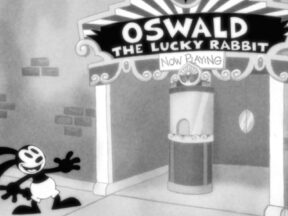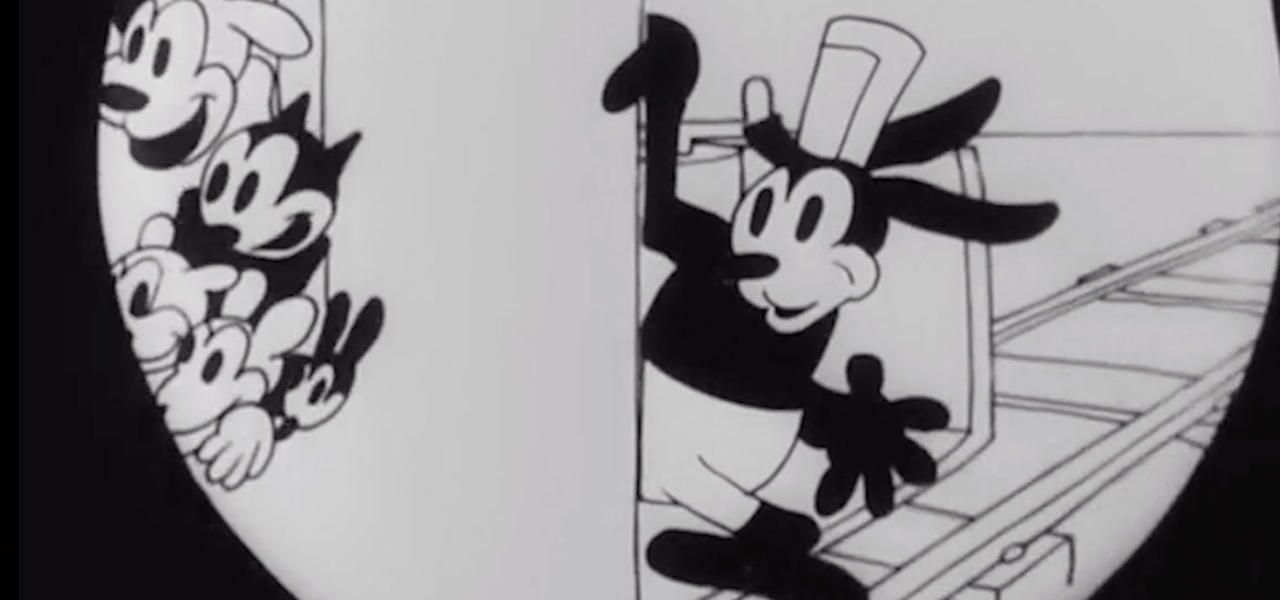
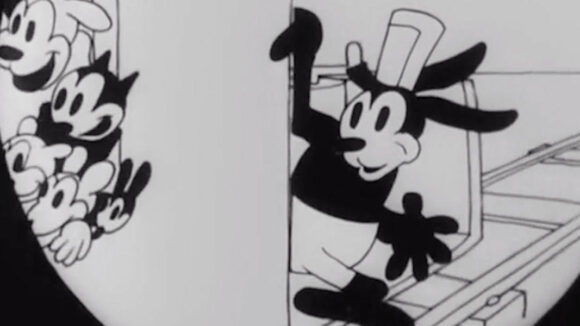
28 Newly Restored Walt Disney Animation Studios Shorts Are Headed To Disney+ In The Coming Months
Disney+ has revealed that it will be adding 28 newly restored Walt Disney Animation Studios classic shorts over the coming months in celebration of The Walt Disney Company’s 100th anniversary.
Beginning on July 7, the platform will start rolling out the collection of films which includes titles going back as far as 1927, such as Trolley Troubles and All Wet. Several Silly Symphony shorts including The Skeleton Dance and Wynken, Blynken and Nod will be included, as well as later shorts featuring some of Disney’s most iconic characters like Donald, Chip and Dale, Pluto, Goofy, Minnie, and, of course, Mickey.
Restorations were executed by Walt Disney Studios Restoration and Preservation team, led by Kevin Schaeffer. Representatives from Walt Disney Animation Studios aided in the restorations as well, including producer Dorothy McKim, Mike Giaimo (production designer on both Frozen films and the upcoming Wish), and Eric Goldberg (director of Pocahontas and animator of Genie in Aladdin).
In a release, McKim said:
We are thrilled to be working with Kevin Schaeffer and the Studio’s restoration team in presenting these beautifully restored versions of classic Disney animated shorts. Two of our top artistic talents have lent their expertise and passion to the project to make sure that the films look their very best, and are authentic to the creative intentions of the original filmmakers. We’re very excited to be sharing these wonderful shorts with the Disney+ audience. They have never looked or sounded better.
Below are the 28 titles that will be added to Disney+ in the coming months.
July 7:
Aquamania (1961)
Avid water-skier Goofy sets out to teach his son the fine art of the sport and accidentally winds up in a championship race. He encounters a hapless octopus and takes a detour on a roller coaster on his way to an unexpected victory.
Bath Day (1946)
Figaro the cat takes center stage, after he gets a bath (complete with ribbon and perfume) from Minnie Mouse, and then encounters a group of frisky alley cats. A frightened Figaro wins the day when his shaking topples a tower of trash cans onto his rival, and he emerges the victor in the scuffle. Minnie rewards him with another bath.
Building a Building (1933)
Mickey operates a steam shovel on a busy construction site where Minnie sells box lunches and a flirtatious Pete is the foreman. When Pete’s advances cross the line, Mickey comes to Minnie’s rescue leading to a chase through a steel skeleton of a building, and a riveting conclusion.
Figaro and Frankie (1947)
Minnie’s cat, Figaro, is trying to take a cat nap, but the canary (Frankie) insists on singing. A squabble ensues in which Frankie’s cage topples. Minnie thinks Figaro has eaten Frankie, but the bird has simply flown the coop. In the end, Figaro rescues Frankie from the neighbor’s dog, and domestic tranquility is restored.
Goofy Gymnastics (1949)
Goofy enlists the aid of an instructional record and gymnastics equipment in an effort to become fit, with the help of some barbells, chin-up bars, and cable expanders. In the process, he wrecks his floors, gets flung around the room, and falls out the window, before ending up approvingly behind the cut-out of the muscular man he aspired to be.
The Skeleton Dance (1929)
A lively quartet of graveyard skeletons comes out to play and dance the night away in this spooky Silly Symphony, set to the macabre music of Edvard Grieg (adapted by Carl Stalling). Ub Iwerks’ inventive animation uses plenty of graveyard gags involving animals and a skeletal xylophone.
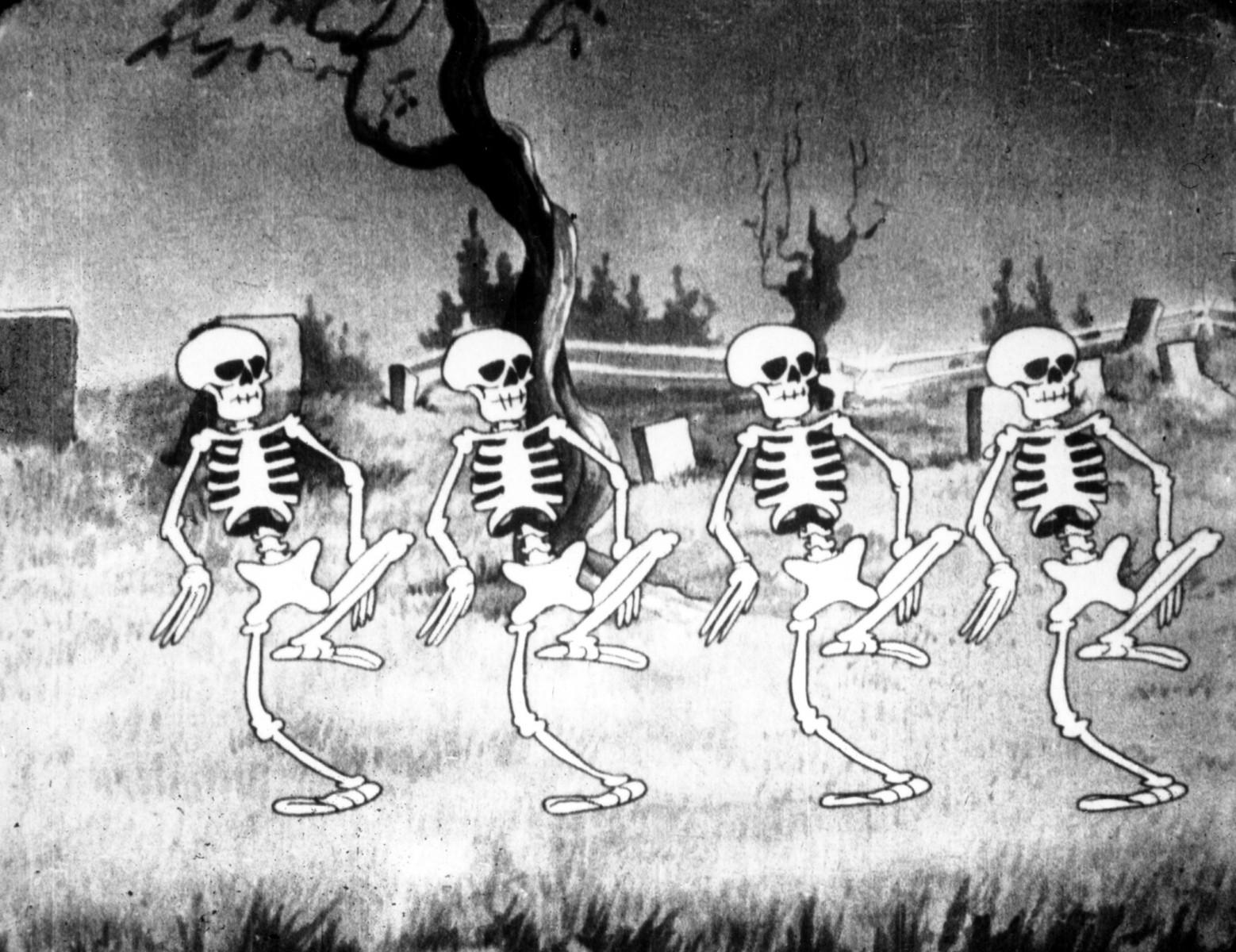
August 11:
Barnyard Olympics (1932)
Mickey and Pete go head to head in a variety of sporting events (running, rowing, vaulting, and a wild bicycle race finale), as the entire barnyard (including Minnie and Horace Horsecollar) turns out to cheer them on. Pete resorts to cheating but Mickey wins in the end.
Donald’s Cousin Gus (1939)
Donald Duck’s gluttonous cousin, Gus Goose, comes for a visit and practically eats him out of house and home. When the direct approach to getting rid of his voracious houseguest fails, Donald resorts to desperate measures to dislodge him.
Donald’s Nephews (1938)
Donald attempts to practice child psychology (with a book called Modern Child Training) on his three visiting nephews – Huey, Dewey and Louie – who love to create mischief and play tricks on their long-suffering Uncle Donald. The book has little impact on the troublemaking trio, who wreak havoc on Donald and his house.
The Flying Jalopy (1943)
Donald Duck buys a rattletrap used airplane from devious proprietor Ben Buzzard, who tricks the unsuspecting duck into making Ben the beneficiary in case of an accident. Ben then leads Donald on a reckless flight, trying to make the plane crash so that he collects a fortune from Donald’s misfortune.
Goofy and Wilbur (1939)
Goofy launched a series of his own solo cartoons with this inventive short film which finds him working in concert with his pet grasshopper pal, Wilbur, to lure fish to his net. Not realizing the harm that Wilbur is in until it is too late, Goofy springs into action to try and rescue his friend from an uncertain fate with a hungry frog.
Mickey’s Steam Roller (1934)
Mickey Mouse is driving a steamroller when his rambunctious twin nephews, Morty and Ferdie Fieldmouse, accompanied by Minnie, stroll by. While Mickey flirts with Minnie, the twins hijack the machine and set out on a path of destruction with Mickey in hot pursuit. Mickey winds up being chased by the boys, resulting in a chaotic but happy moment.
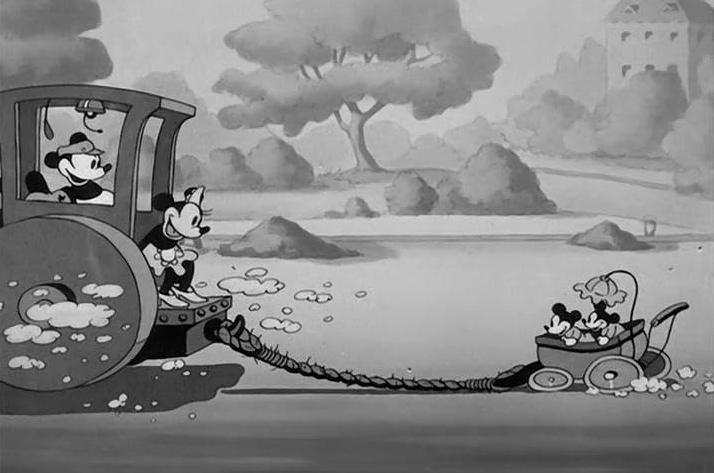
September 5-8:
All Wet (1927)
Hot dog vendor Oswald the lucky rabbit takes a break from the daily grind and poses as a lifeguard to impress lovely beachgoer Fanny Cottontail. When Fanny’s pretend distress turns into real trouble, Oswald rows to the rescue and the pair make waves as they battle their way back to shore.
Trolley Troubles (1927)
“Trolley Troubles” launched Walt Disney’s Oswald the Lucky Rabbit cartoon series (although it was actually the second short to go into production) and features Oswald as a trolley conductor trying to keep things on track. Along the way, he faces a cabin full of rowdy bunny passengers, impossibly steep hills, a stubborn cow, a charging goat, and other obstacles.
Bone Trouble (1940)
This first official entry in the Pluto cartoon series finds our intrepid pup on the run after stealing a bone from Butch the bulldog, and finding refuge in a carnival “Hall of Mirrors.” His initial fear of the distortions leads to a fun-filled adventure where he takes advantage of the mirrors to fend off Butch.
Merbabies (1938)
Walt Disney enlisted former colleagues Hugh Harman and Rudy Ising to help create this underwater Silly Symphony. Ocean waves form merbabies who are summoned to an aquatic circus playground on the ocean floor, where they interact with a parade of seahorses, starfish, and other marine life, before disappearing into the surface from which they came.
Mickey’s Kangaroo (1935)
Mickey and Pluto spring into action when an Australian friend sends a boxing kangaroo and her child their way. Pluto is hopping mad at first when the visitors wreck his new doghouse and eat his food, but Mickey welcomes the opportunity to have a boxing partner. All’s well that ends well as they come together as a most unusual extended family.
Playful Pluto (1934)
Pluto tries to help Mickey with some spring cleaning and leaf gathering, but the day descends into chaos with the arrival of a whirlwind, a leaky hose with a mind all its own, and a fly invasion. Pluto gets into a sticky situation with a roll of flypaper, which leads to some of his most memorable scenes.
Pluto, Junior (1942)
Pluto and Pluto Junior are enjoying a lazy afternoon snooze when the playful pup tangles with a ball, a balloon, a worm, a bird, and a clothesline. Pluto rescues his son from a precarious situation, gets hung up in the process, but manages to land with a splash.
The Barn Dance (1929)
Minnie Mouse has to choose between two dance partners, as clumsy Mickey competes with the more experienced Pete for the pleasure of her company. Mickey uses balloons to make himself lighter on his feet but gets busted and comes up short.
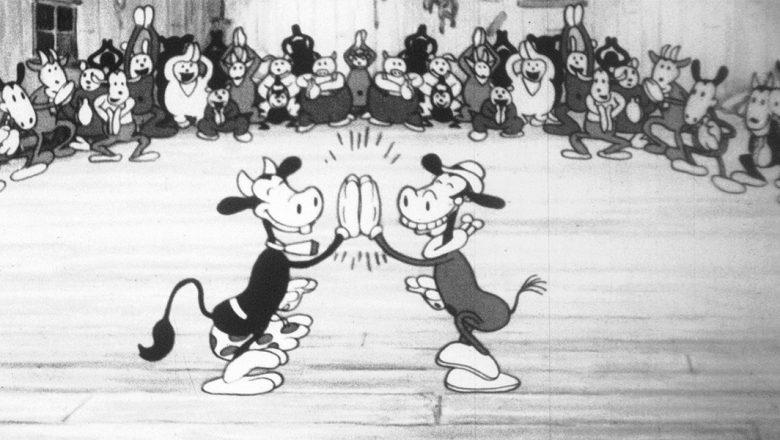
October 6:
Camping Out (1934)
Mickey, Minnie, Clarabelle Cow, and Horace Horsecollar are on a camping trip and enjoying the great outdoors until the arrival of a lone mosquito escalates into an all-out attack involving an army of stinging pests. The campers counterattack with some resourceful countermoves.
Chips Ahoy (1956)
Hungry chipmunks Chip and Dale are down to their last acorn when they spot an acorn-laden tree belonging to Donald Duck across the lake. Pirating Donald’s ship from inside a bottle, the resourceful duo make their way to the tree, but not without interference from Donald. They take the wind out of Donald’s sail, and end up having the last laugh.
Fiddling Around (1930)
Mickey Mouse shows a wide range of expressions and emotions (and even sports long hair) in this one-mouse virtuoso violin performance. He faces an unseen audience and a heckler as he earnestly plays several pieces including the Hungarian Dance and the William Tell Overture. Walt Disney directed this film, which is also known as “Just Mickey.”
Inferior Decorator (1948)
Donald Duck stirs up a hornet’s nest of trouble when he tangles with a bee named Spike, who is trying to pollinate Donald’s floral wallpaper. When Donald traps Spike with wallpaper glue, it leads to a sparring match between the two. The whole plan backfires when Spike manages to escape and enlist a hive-full of his bee pals to help get revenge.
Old MacDonald Duck (1941)
Donald Duck gets into the rhythm of doing his chores around the farm, including feeding the animals and milking Clementine the cow, but finds there’s a fly in the ointment (or rather, the milk) when a persistent fly upsets his plans and drives him to distraction.
When the Cat’s Away (1929)
When Tom Cat is away, Mickey, Minnie, and a group of mischievous mice take over his home and entertain themselves with a variety of musical mayhem. Mickey and Minnie dance across the piano keys, use a wheel of Swiss cheese as a player piano roll and find an inventive new way to play a phonograph record.
Wynken, Blynken and Nod (1938)
This elaborate Silly Symphony cartoon is a dream-like fantasy about three babes who journey to the moon in a wooden shoe-boat. Along the way, they go star-fishing, and catch a comet in their net to pull them through the night sky. When a storm breaks, they slide to earth on a moonbeam and back into a cradle as one little sleepyhead.
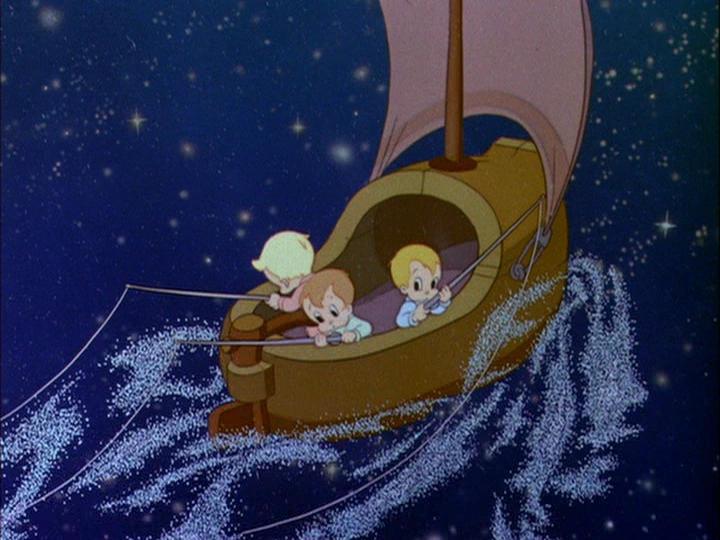
Pictured at top: Trolley Troubles

.png)
